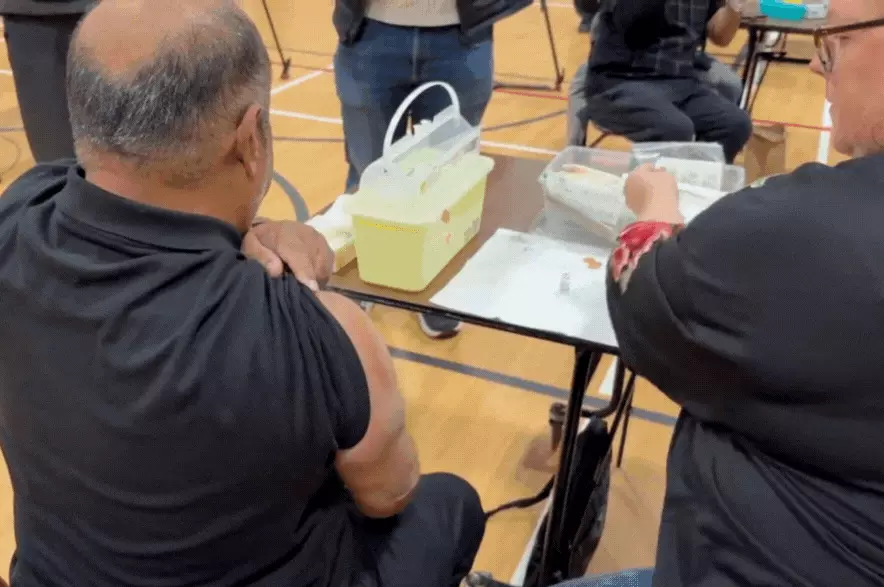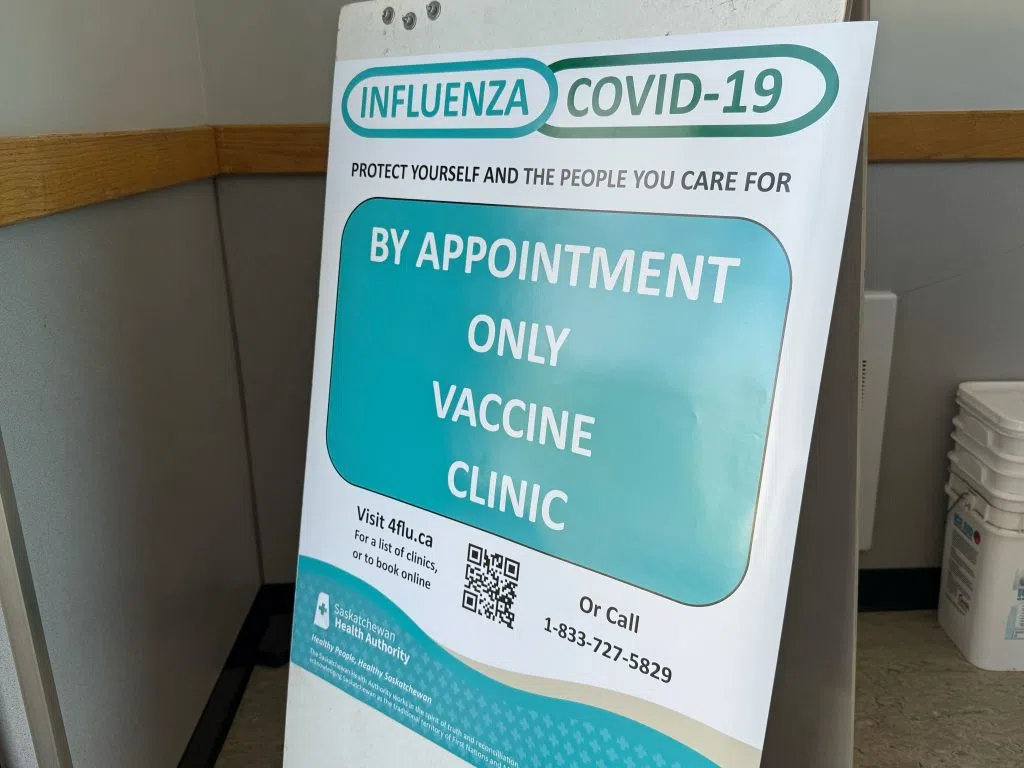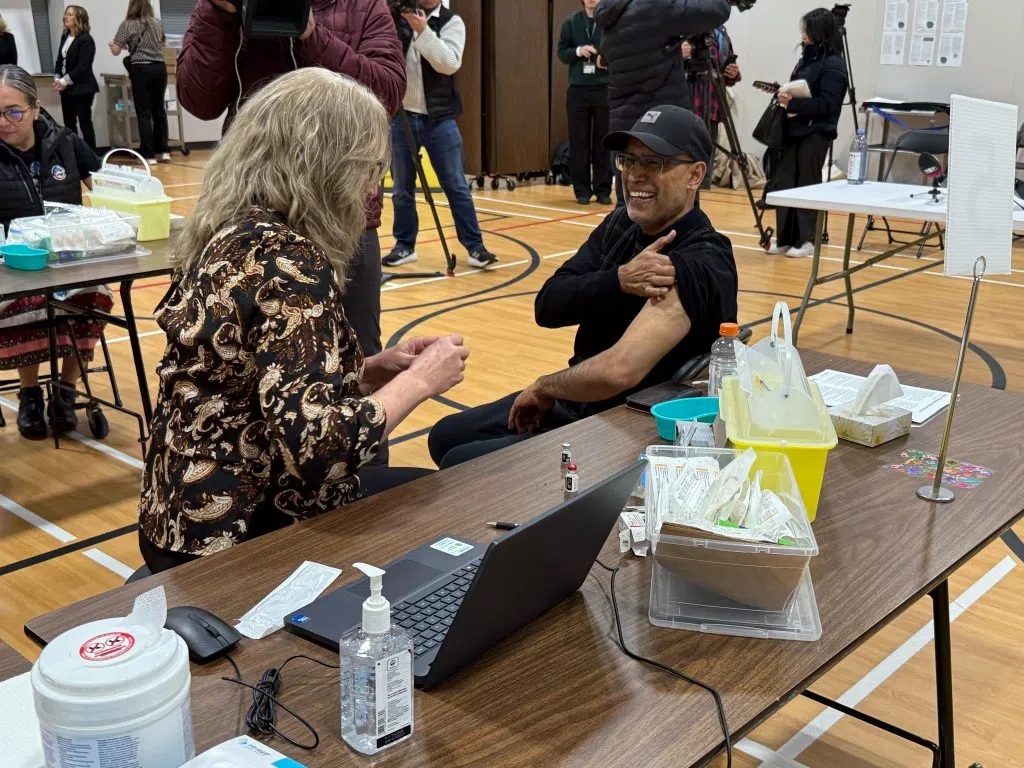Every shot counts.
The province’s Fall Immunization Program officially kicked off Tuesday morning and health-care professionals, like Chief Medical Health Officer Dr. Saqib Shahab, rolled up their sleeves to get immunized against flu and COVID-19.
Read more:
- Temporary homes in Denare Beach, Creighton provide much-needed relief: Councillor
- Corey Mace, Jeremy O’Day will continue to lead Sask. Roughriders through 2028
- Back in brass: Saskatoon musician’s tuba returned after six years
“It is so important to prevent illness and maintain health, and vaccinations play a key role in keeping all of us healthy,” Shahab said.
All Saskatchewan residents ages six months and older are eligible for the free vaccines.
According to the SHA, children aged six months to four years can only be immunized at SHA influenza and COVID-19 clinics, public health offices, or by a physician or nurse practitioner.
Shahab said COVID-19 cases in the province right now are moderate, and cases of influenza and respiratory syncytial virus (RSV) are fairly low, but the numbers are expected to rise.
“Every fall, we see these respiratory illnesses pick up, and so do, unfortunately, hospitalizations,” he said.
“It’s better to get vaccinated before we see a lot of these respiratory viruses transmitting.”
Shahab recommends booking an appointment in the first two to three weeks of clinics being open.
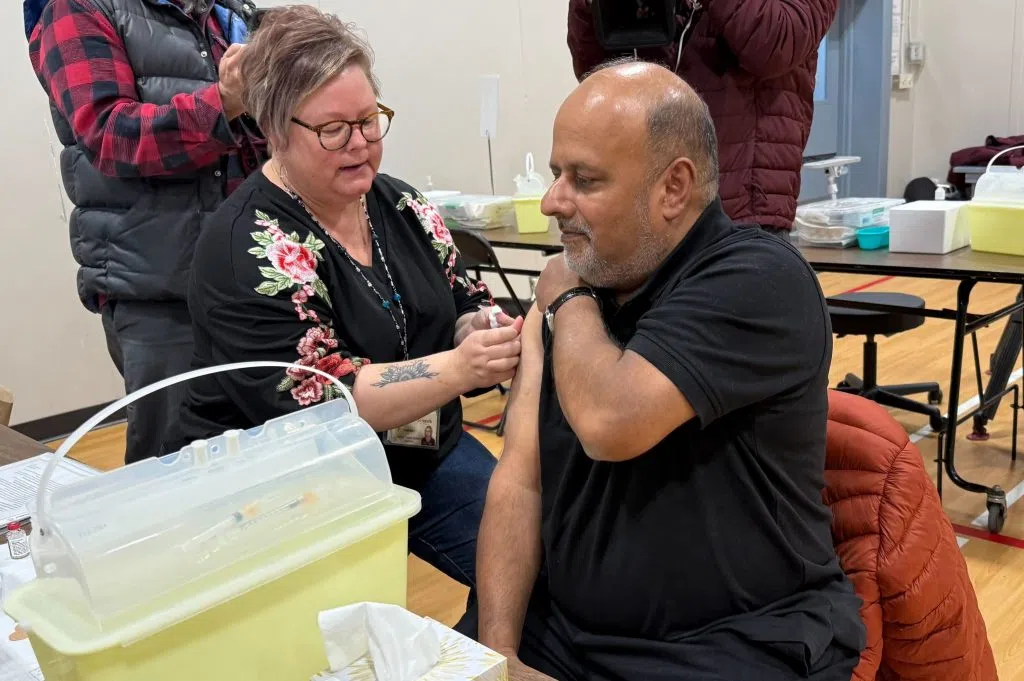
“Immunizations are a safe and effective way to help people stay healthy and to prevent respiratory illness,” Dr. Saqib Shahab said. (Nicole Garn/980 CJME)
The vaccinations are available at all SHA influenza and COVID-19 clinics, some physicians and nurse practitioner officers and at participating pharmacies. Anyone wanting to get vaccinated is encouraged to call ahead to confirm what is available.
Appointments can be booked through the SHA’s online booking system or by calling 1-833-727-5829 Monday to Friday.
Walk-in clinic locations are also listed online.
People can book and receive both their influenza and COVID-19 vaccines either in a single appointment or separately. They may choose to receive one or both vaccines, according to the SHA.
“Seniors, people with chronic health conditions or weakened immune systems, children under the age of five, and pregnant women are more likely to experience complications from respiratory illness,” the SHA said in a statement.
“These higher-risk groups are strongly encouraged to get vaccinated as soon as possible.”
According to LeeAnn Palazzo, an immunization outreach coordinator with the SHA, as of Tuesday morning, 11,515 immunization appointments were booked across Saskatchewan.
She did not have the data available for whether all bookings were for both immunizations offered or just one.
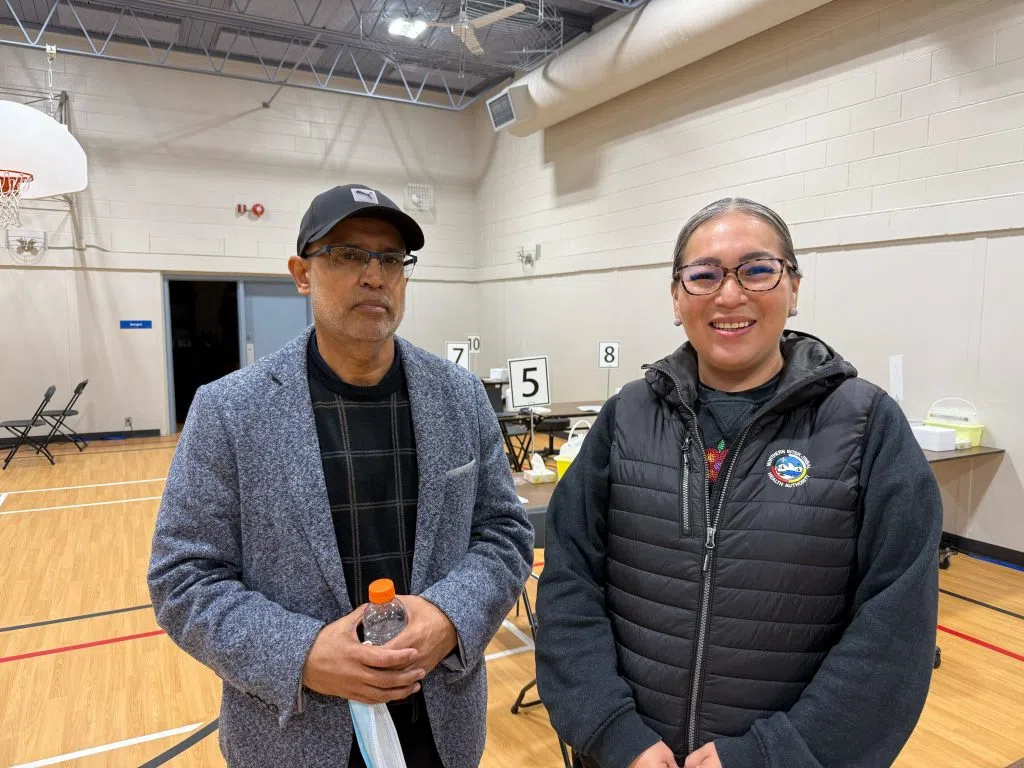
Dr. Ibrahim Khan (left) and Pauline “Sunshine” Dreaver were both immunized against the flu and COVID on Oct. 14 for the province’s fall immunization program kick-off. (Nicole Garn/980 CJME)
Accessibility for Indigenous communities
Indigenous health-care professionals also rolled up their sleeves to get both jabs on Tuesday morning.
Pauline “Sunshine” Dreaver is a public health nurse for Northern Inter-Tribal Health Authority (NITHA).
She has been working as a nurse for 15 years and said health-care workers are ready to serve Indigenous communities.
“Accessibility within our First Nations communities is there,” she said. “Our health-care teams are there to support.”
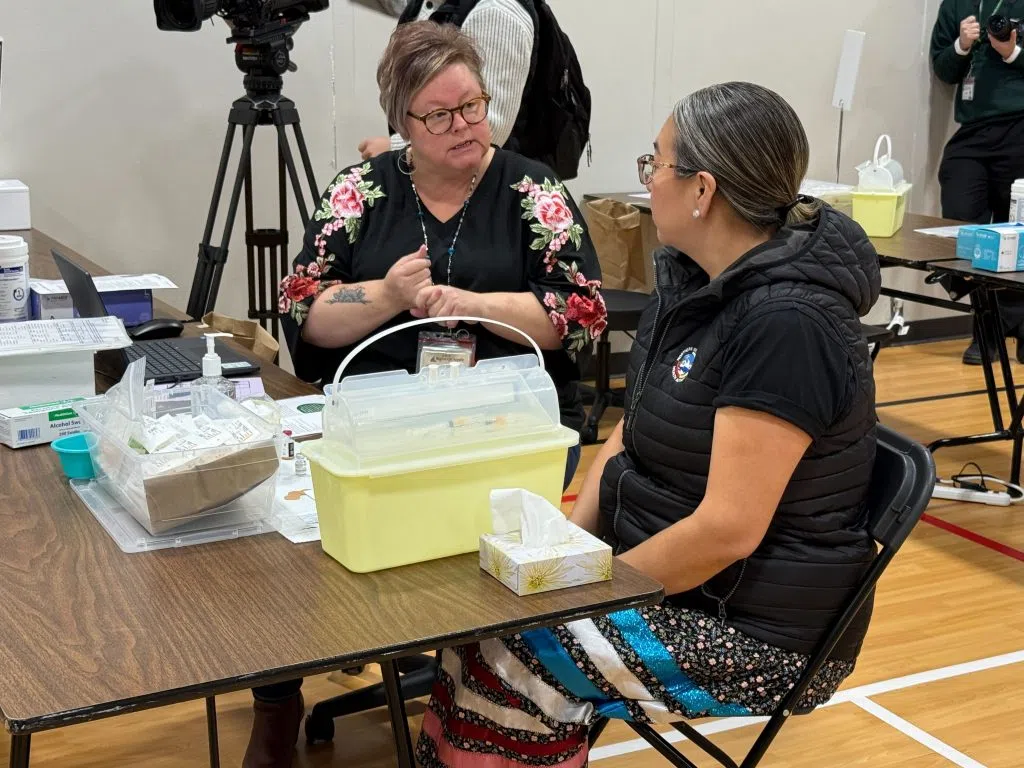
Pauline “Sunshine” Dreaver and a health-care provider do a quick consultation before Dreaver receives her vaccinations. (Nicole Garn/980 CJME)
She said transport is also being made available for those who don’t live near the pop-up clinics.
Dreaver said working with the SHA to provide health care for northern communities is part of reconciliation.
“It’s teamwork, working together to bring people out. It’s so important,” she said.
She encourages people who have concerns or questions to speak with a trusted health-care provider and avoid relying on social media.
“I see a lot of things circulating right now that are representing COVID and influenza in a bad way,” she said.
Dr. Ibrahim Khan, Regional Medical Health Officer with Indigenous Services Canada, reiterated Dreaver’s statement on the importance of vaccines and accessibility.
“For Indigenous populations, particularly those with chronic conditions and living in overcrowded housing, the risk of complications is very high due to flu, and that can lead to hospitalization,” he said.
“So I think these (vaccinations) are really good things that not only keep you safe, but your family and your community.”
He encourages people to come out with their families and get vaccinated.
“Share tradition, not the flu,” he said.
Read more:
